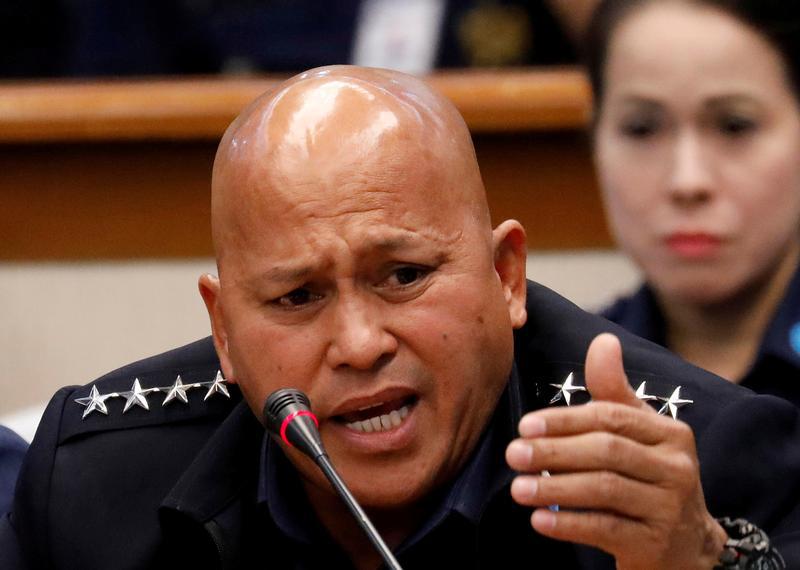Philippines' Retiring Police Chief Should Answer for Deaths
| Publisher | Human Rights Watch |
| Publication Date | 17 April 2018 |
| Cite as | Human Rights Watch, Philippines' Retiring Police Chief Should Answer for Deaths, 17 April 2018, available at: https://www.refworld.org/docid/5b39f2b6a.html [accessed 22 May 2023] |
| Disclaimer | This is not a UNHCR publication. UNHCR is not responsible for, nor does it necessarily endorse, its content. Any views expressed are solely those of the author or publisher and do not necessarily reflect those of UNHCR, the United Nations or its Member States. |
Dela Rosa Led Duterte Campaign That's Killed Thousands
April 17, 2018 5:28PM EDT Dispatches
Carlos H. Conde, Researcher, Asia Division
 Philippine National Police chief Ronaldo dela Rosa testifies during a senate hearing on the killing of 17-year-old Kian delos Santos, in Pasay, Metro Manila, Philippines September 5, 2017. © 2017 Reuters
Philippine National Police chief Ronaldo dela Rosa testifies during a senate hearing on the killing of 17-year-old Kian delos Santos, in Pasay, Metro Manila, Philippines September 5, 2017. © 2017 Reuters
When Ronald Dela Rosa retires on Thursday as director general of the Philippine National Police (PNP), he will leave behind a police force with a sordid human rights record unmatched since the Marcos dictatorship.
As police chief, Dela Rosa deployed the forces that have waged President Rodrigo Duterte's murderous "war on drugs." That campaign has targeted mainly urban slum dwellers and resulted in the deaths of more than 12,000 men, women, and children by police and police-backed vigilantes.
Dela Rosa has been an enthusiastic supporter of the anti-drug campaign Duterte launched after taking office in June 2016. He rejected concerns about the soaring death toll of the police operations, saying the deaths were proof of an "uncompromising" police approach to drug crimes. He slammed calls by lawmakers for an investigation into the killings as "legal harassment," saying it "dampens the morale" of police officers.
Police statistics, which independent analyses have derided as featuring "flawed and inflated numbers," reflect a lower death toll of more than 4,000 killings by police in anti-drug operations. But Human Rights Watch research found that many of the killings have been summary executions in which police or their agents planted weapons and drugs on bodies and then claimed the victims had "fought back." No one has been held to account for these killings.
This week, Dela Rosa boasted about his anti-drug efforts and welcomed "the new leadership that will infuse new blood into the campaign." Showing no apparent concern for calls for accountability for the drug-war deaths, Dela Rosa said he is willing to face prosecution for his role. Yet he, Duterte, and other top officials implicated in inciting and instigating the killings of drug suspects are facing heightened international scrutiny for their role in possible crimes against humanity.
The International Criminal Court has begun a preliminary examination into the killings, and there is growing momentum inside the United Nations for a separate UN inquiry. These developments suggest that sooner or later, Dela Rosa may be held to account for the bloody campaign he so zealously endorsed.
Link to original story on HRW website

